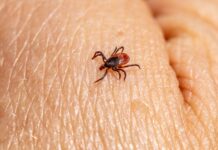Search #biotin on Instagram and you’ll find almost 250,000 posts about the nutrient, also known as vitamin B7 or vitamin H. Despite limited evidence, biotin supplements have surged in popularity to support luscious locks, a glowing complexion, and unbreakable nails.
Although the evidence for skin, hair and nails is lacking, biotin is essential for a range of metabolic pathways and is non-toxic even at high doses. So if people want to spend their money on it, what’s the problem?
Well, extra biotin might not be directly harmful to health, but taking biotin supplements can hinder medical testing. As a BC Medical Journal report highlights, high biotin levels can skew the results of diagnostic tests, leading to delayed or incorrect diagnoses and potential mismanagement of serious conditions.
Biotin is rarely lacking in the North American diet. Found in foods from avocado and eggs, to pork and whole grain cereals, biotin is only prescribed in very specific cases such as disorders where the absorption of nutrients from the gut is impaired.
Despite this, the promise of better skin, hair and nails, and recommendations from Instagram influencers is driving sales. A recent survey found that 7.6% of patients visiting an outpatient laboratory at Vancouver General Hospital were using the supplement – mostly younger females. The Mayo Clinic has reported similar figures (7.7%).
Although it is non-toxic, high levels are causing problems for clinicians. In blood tests for cardiac disease, hormone disorders, cancer, anemia, and infectious diseases, high biotin levels can cause results to appear excessively high or low.
The impact depends on the type of blood test being conducted, but infertility testing, thyroid testing and tumour-marking testing can all be affected explains Morris Pudek, regional medical lead for clinical chemistry for Vancouver Coastal Health laboratories and a clinical professor at the University of British Columbia.
“We are now actually putting warnings on a couple of our more important tests, right with the results, to indicate to clinicians that these results may be falsely affected,” Pudek told CBC News.
Although professionals are aware of biotin interference, patients often see the supplement as cosmetic and don’t mention it to their doctor. This can send care teams off on time-consuming wild goose chases, and delay important diagnoses.
So, if you are choosing to take biotin supplements, don’t forget to mention it when visiting your doctor.





































